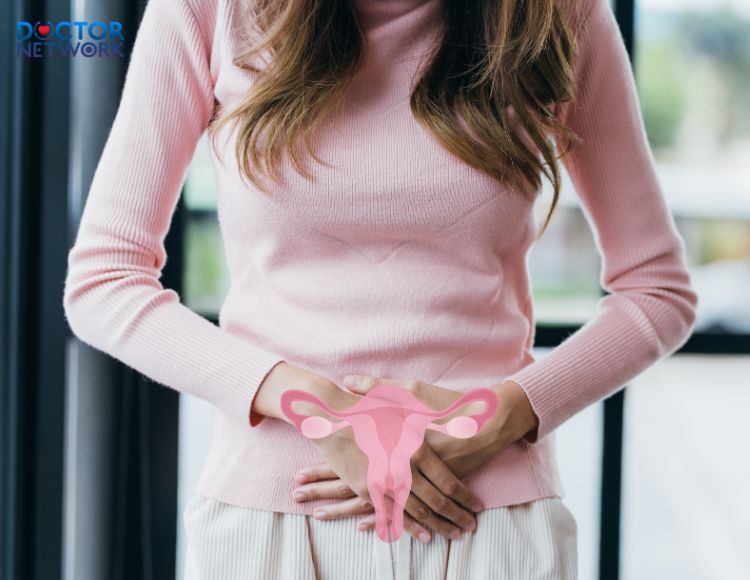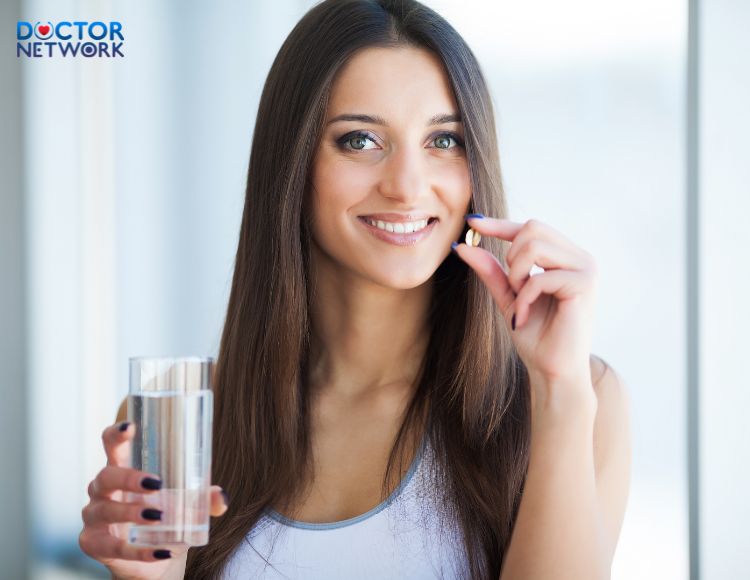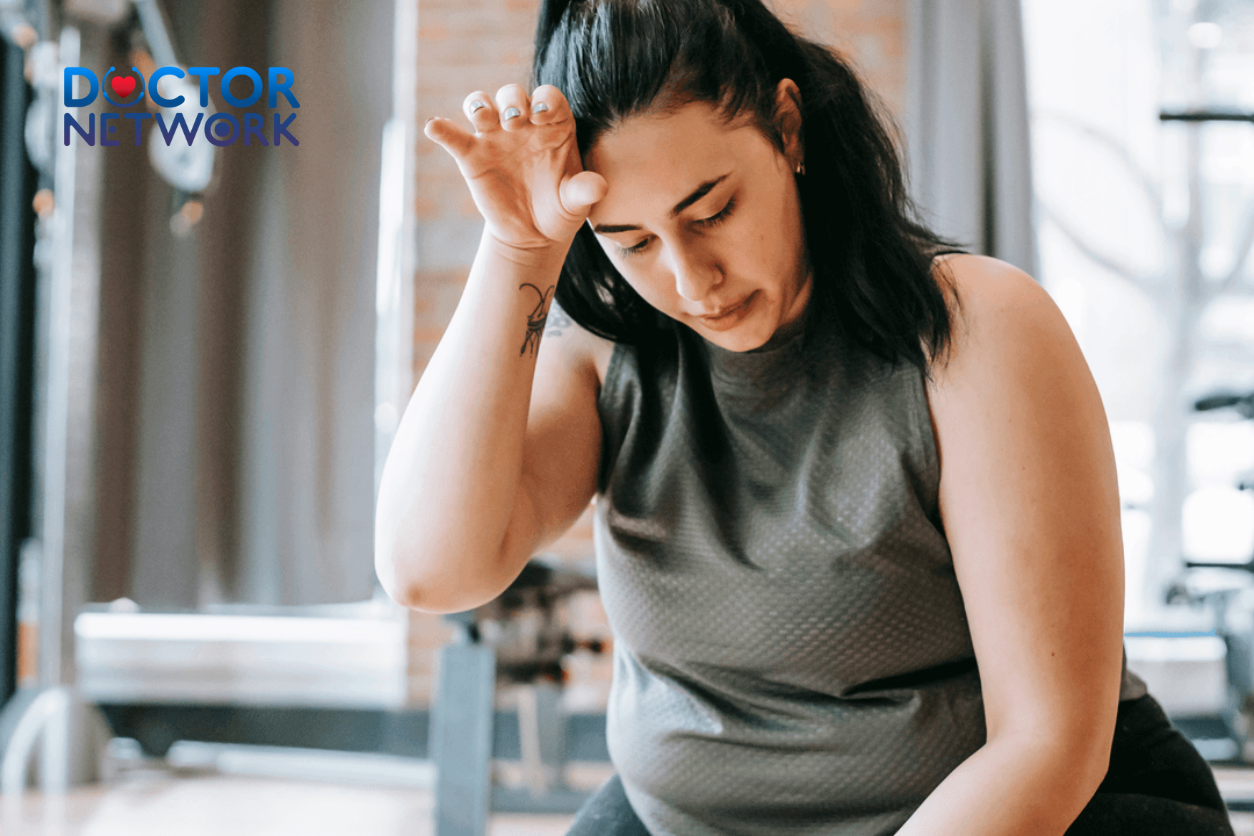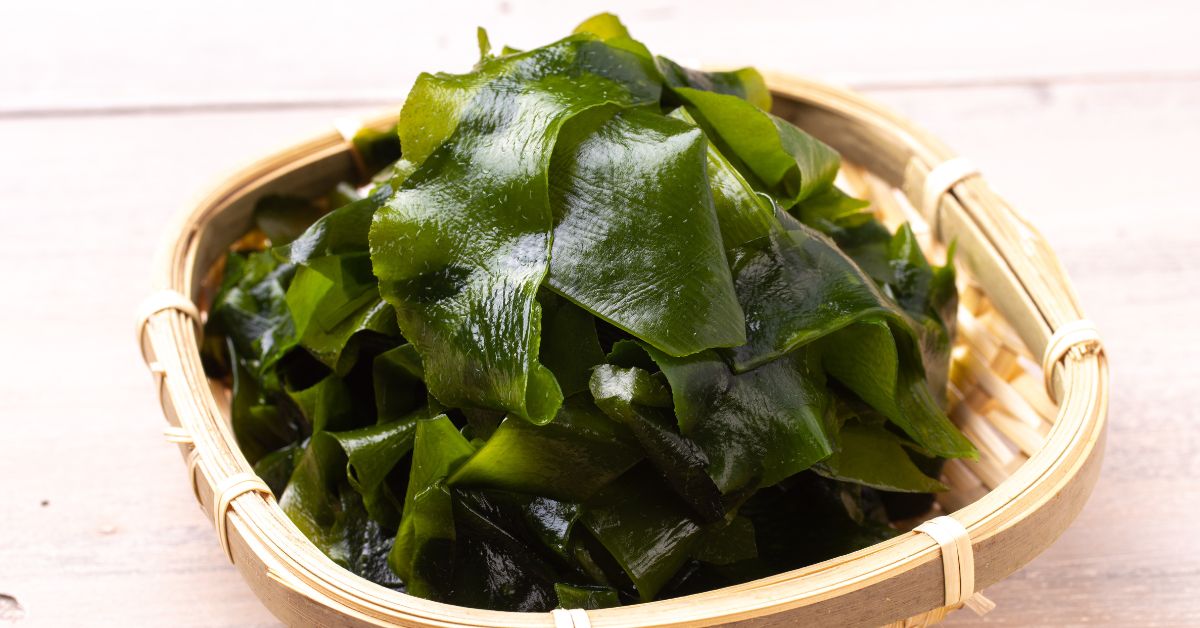Vitamin E, a powerful antioxidant, plays a crucial role in female reproductive health. Recent studies suggest this nutrient may significantly impact ovarian function, from protecting egg cells against oxidative stress to enhancing fertility. In this article, we’ll explore “Effects of vitamin e on ovaries“, examine its potential effects on female sex hormones, and discuss its role in managing common ovarian health issues.
Vitamin E and Ovarian Function
Vitamin E, also known as tocopherol, is a group of fat-soluble compounds with potent antioxidant properties. Alpha-tocopherol, the most common form of vitamin E, plays a vital role in protecting cells from damage caused by free radicals.
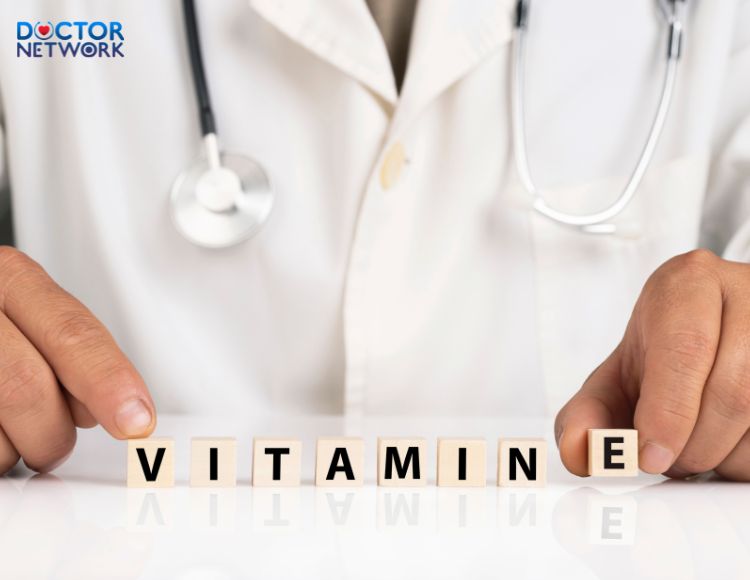
Vitamin E, also known as tocopherol, is a group of fat-soluble compounds with powerful antioxidant properties
The ovaries, women’s primary reproductive organs, are particularly susceptible to oxidative stress. This makes vitamin E a crucial factor in maintaining optimal ovarian health.
Table 1: Forms of Vitamin E and Their Primary Functions
| Form of Vitamin E | Primary Function |
|---|---|
| Alpha-tocopherol | Strongest antioxidant, protects cell membranes |
| Beta-tocopherol | Supports neurological function |
| Gamma-tocopherol | Anti-inflammatory, supports immune system |
| Delta-tocopherol | Supports cardiovascular health |
Impact of Vitamin E on Ovarian Hormones
How can vitamin E influence the production and balance of ovarian hormones? Research indicates that vitamin E may:
- Enhance estrogen production
- Improve progesterone receptor sensitivity
- Support testosterone balance
A study published in the Journal of Clinical Endocrinology demonstrated that women supplementing with vitamin E had significantly higher estradiol levels compared to the control group.
Effects of vitamin e on ovaries
Polycystic ovary syndrome (PCOS) and premature ovarian insufficiency (POI) are two common ovarian health issues that vitamin E may positively impact.
Vitamin E and Polycystic Ovary Syndrome (PCOS)
PCOS, a common endocrine disorder affecting about 10% of women of reproductive age, may be improved through vitamin E supplementation. Studies suggest vitamin E can:
- Reduce oxidative stress associated with PCOS
- Improve insulin sensitivity
- Support hormone balance
Vitamin E helps neutralize free radicals, preventing oxidative stress
Table 2: Potential Effects of Vitamin E on PCOS
| PCOS Symptom | Potential Effect of Vitamin E |
|---|---|
| Menstrual irregularities | May improve menstrual cycle regularity |
| Insulin resistance | Increases insulin sensitivity |
| Elevated androgens | May help balance hormones |
| Chronic inflammation | Reduces inflammation through antioxidant action |
Vitamin E and Premature Ovarian Insufficiency (POI)
Premature ovarian insufficiency, a condition where ovaries stop functioning before age 40, may also benefit from vitamin E supplementation. Research indicates vitamin E might:
- Protect egg cells from oxidative damage
- Extend ovarian lifespan
- Support endometrial function
Vitamin E and Fertility
Vitamin E plays a significant role in maintaining and improving women’s fertility. It can affect egg quality, ovarian reserve, and even the outcomes of assisted reproductive technologies.
Vitamin E plays a significant role in maintaining and improving women’s fertility
Egg Quality and Ovarian Reserve
Vitamin E, with its potent antioxidant properties, can protect egg cells from oxidative stress-induced damage. This is particularly important when considering age-related decline in egg quality.
List of potential effects of vitamin E on egg quality:
- Protects egg cell DNA from oxidative damage
- Improves mitochondrial function in egg cells
- Supports healthy cell division processes
- Enhances egg fertilization potential
Vitamin E and Assisted Reproductive Technologies
In the field of assisted reproductive technologies (ART), such as in vitro fertilization (IVF), vitamin E is being studied for its potential to improve treatment outcomes. A recent meta-analysis in the journal Fertility and Sterility showed that women supplementing with vitamin E before undergoing IVF had significantly higher pregnancy rates.
Vitamin E Supplementation for Ovarian Health
While vitamin E has many potential benefits for ovarian health, supplementation should be approached carefully and under medical supervision.
Dosage and Safety
The National Institutes of Health (NIH) recommends a daily vitamin E intake of 15mg (22.4 IU) for adult women. However, dosage may vary depending on individual health status and intended use.
Table 3: Food Sources Rich in Vitamin E
| Food | Vitamin E Content (mg/100g) |
|---|---|
| Sunflower seeds | 35.17 |
| Almonds | 25.63 |
| Sunflower oil | 41.08 |
| Avocado | 2.07 |
| Spinach | 2.03 |
Note: Consuming vitamin E through a balanced diet is generally safer than supplementation.
Conclusion
Vitamin E plays a crucial role in maintaining ovarian health and supporting women’s fertility. From protecting egg cells against oxidative stress to improving hormone balance and aiding in the management of ovarian health issues like PCOS and POI, vitamin E shows immense potential in the field of female reproductive health.
However, it’s important to emphasize that the effects of vitamin E can vary depending on individual health conditions, lifestyle, and medical history. Therefore, before starting any vitamin E supplementation regimen, it’s crucial to consult with a qualified healthcare professional for personalized advice.
Research on the effects of vitamin E on ovarian health is ongoing, and we can expect new and exciting insights in the future. In the meantime, maintaining a balanced diet rich in natural vitamin E, combined with a healthy lifestyle, remains the best approach to support optimal ovarian health.
5 frequently asked questions closely related to the topic ‘Effects of vitamin E on ovaries’
How does vitamin E benefit ovarian health?
Vitamin E, particularly alpha-tocopherol, benefits ovarian health through its potent antioxidant properties. It protects ovarian cells from oxidative stress, which can damage egg cells and reduce fertility. Vitamin E also supports hormone balance, potentially improving estrogen and progesterone levels. Additionally, it may help maintain the ovarian reserve by protecting primordial follicles from oxidative damage.
Can vitamin E supplementation help with Polycystic Ovary Syndrome (PCOS)?
Yes, vitamin E supplementation may help manage PCOS symptoms. Studies suggest that vitamin E can reduce oxidative stress associated with PCOS, improve insulin sensitivity, and support hormone balance. These effects may lead to more regular menstrual cycles and improved ovarian function in women with PCOS. However, it’s crucial to consult with an endocrinologist or gynecologist before starting any supplementation regimen.
Is there a link between vitamin E and fertility?
Research indicates a potential link between vitamin E and fertility. Vitamin E may improve egg quality by protecting oocytes from free radical damage. It also supports the health of the endometrium, which is crucial for successful implantation. Some studies have shown that vitamin E supplementation may increase pregnancy rates in women undergoing In Vitro Fertilization (IVF) treatments. However, more research is needed to fully understand the extent of vitamin E’s impact on fertility.
What are the best food sources of vitamin E for ovarian health?
Several foods are rich in vitamin E and beneficial for ovarian health. Top sources include:
- Nuts and seeds (particularly almonds and sunflower seeds)
- Vegetable oils (especially sunflower and wheat germ oil)
- Avocados
- Leafy green vegetables (such as spinach and kale)
- Fortified cereals Incorporating these foods into a balanced diet can help ensure adequate vitamin E intake to support ovarian function.
Can vitamin E help prevent premature ovarian failure?
While research is ongoing, some studies suggest that vitamin E may play a role in preventing or delaying premature ovarian failure (POF), also known as primary ovarian insufficiency. The antioxidant properties of vitamin E may protect ovarian tissue from oxidative damage, potentially preserving ovarian function for longer. Additionally, vitamin E’s potential to support hormone balance may benefit women at risk of POF. However, it’s important to note that vitamin E is not a cure for POF, and any supplementation should be discussed with a reproductive endocrinologist.
Scientific evidence
- “Effects of vitamin E on ovarian function and fertility in women” (2015) – This study was conducted by a group of scientists from Harvard Medical School, published in the Journal of Fertility and Infertility.
- “The role of vitamin E in protecting the ovary from oxidative stress” (2018) – This work was published by researchers from the National Research Institute of Reproductive Medicine of Japan in the Journal of Clinical Endocrinology.
The above article has provided information on “effects of vitamin e on ovaries” and related knowledge. Hope the article will be useful to you.
References:
Should I take vitamin E if I have polycystic ovary? – Vinmecvinmec·2
Kiểm Duyệt Nội Dung
More than 10 years of marketing communications experience in the medical and health field.
Successfully deployed marketing communication activities, content development and social networking channels for hospital partners, clinics, doctors and medical professionals across the country.
More than 6 years of experience in organizing and producing leading prestigious medical programs in Vietnam, in collaboration with Ho Chi Minh City Television (HTV). Typical programs include Nhật Ký Blouse Trắng, Bác Sĩ Nói Gì, Alo Bác Sĩ Nghe, Nhật Ký Hạnh Phúc, Vui Khỏe Cùng Con, Bác Sỹ Mẹ, v.v.
Comprehensive cooperation with hundreds of hospitals and clinics, thousands of doctors and medical experts to join hands in building a medical content and service platform on the Doctor Network application.





